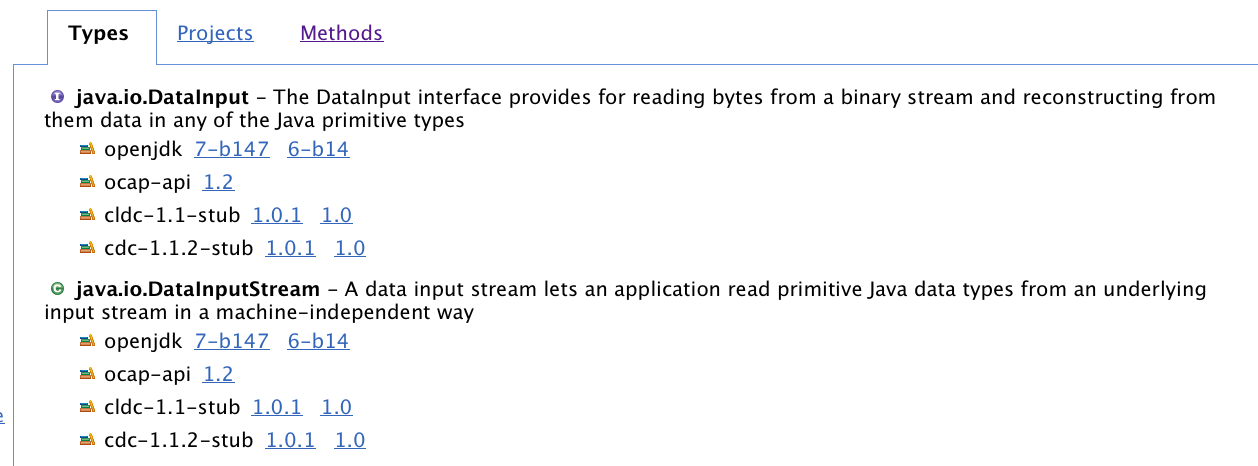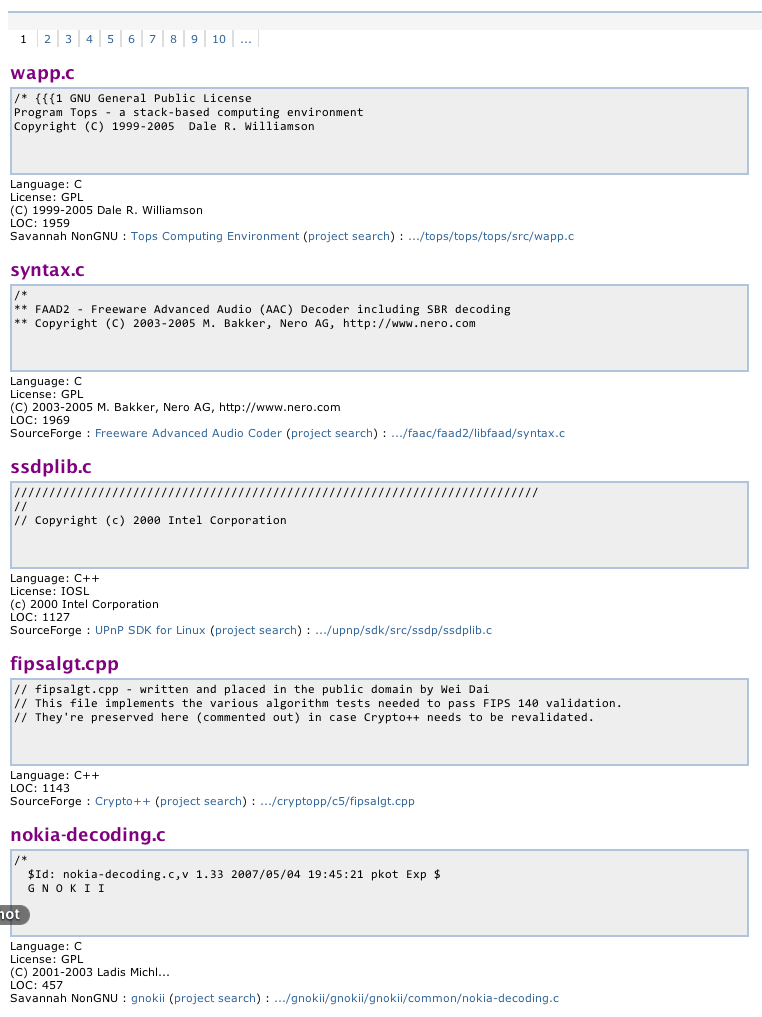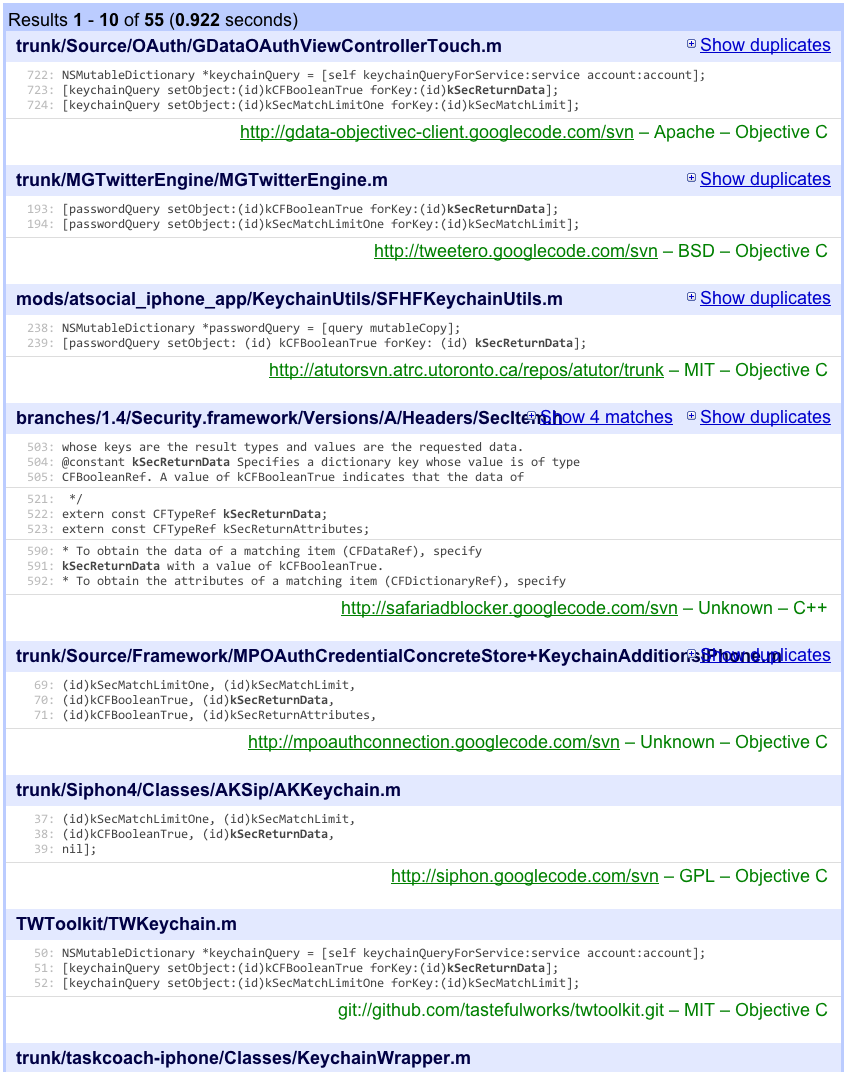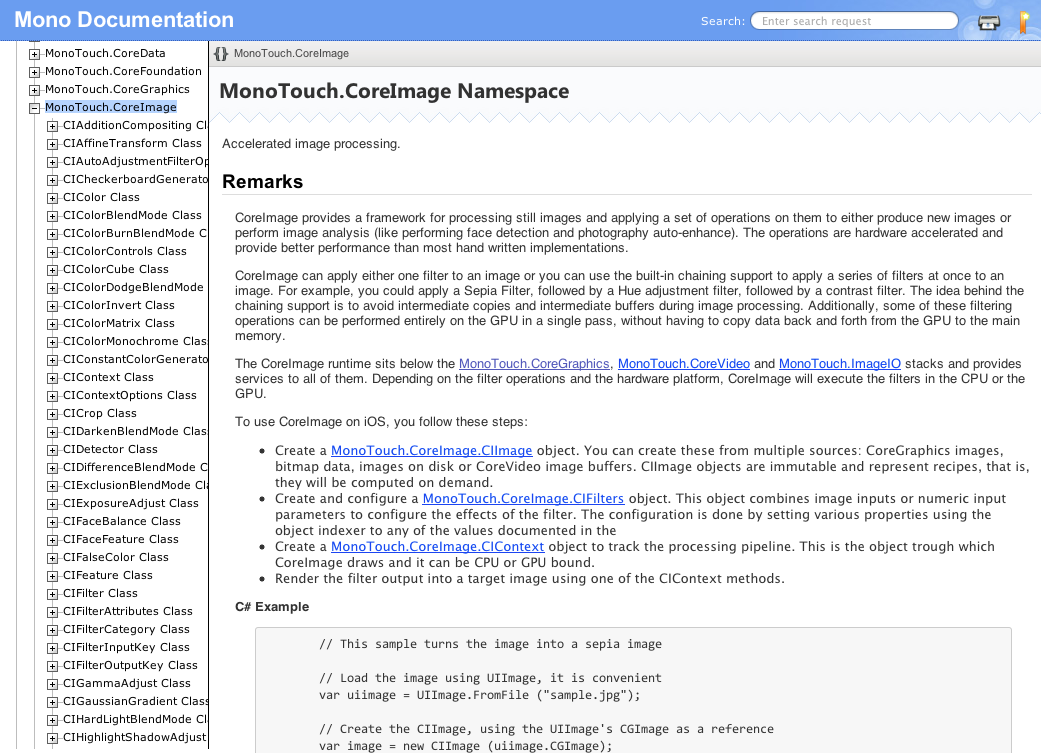Farewell to Google's CodeSearch
It seems that part of Steve Jobs' legacy was to give Larry Page some advise: focus. This according to Steve Jobs' recently published biography.
So Larry Page took the advise seriously and decided to focus. His brand of focus is to kill projects that were distracting to their goals. One of them, -and the one I cared the most about- was CodeSearch..
What did CodeSearch do for programmers?
The CodeSearch service was a unique tool as it indexed open source code in the wild.
Codesearch is one of the most valuable tools in existence for all software developers, specifically:
- When an API is poorly documented, you could find sample bits of code that used the API.
- When an API error codes was poorly documented, you could find sample bits of code that handled it.
- When an API was difficult to use (and the world is packed with those), you could find sample bits of code that used it.
- When you quickly wanted to learn a language, you knew you could find quality code with simple searches.
- When you wanted to find different solutions to everyday problems dealing with protocols, new specifications, evolving standards and trends. You could turn to CodeSearch.
- When you were faced with an obscure error message, an obscure token, an obscure return value or other forms of poor coding, you would find sample bits of code that solved this problem.
- When dealing with proprietary protocols or just poorly documented protocols, you could find how they worked in minutes.
- When you were trying to debug yet another broken standard or yet another poorly specified standard, you knew you could turn quickly to CodeSearch to find the answers to your problems (memories of OAuth and IMAP flash in my head).
- When learning a new programming language or trying to improve your skills on a new programming language, you could use CodeSearch to learn the idioms and the best (and worst practices).
- When building a new version of a library, either in a new language, making a fluent version, making an open source version, building a more complete version you would just go to Codesearch to find answers to how other people did things.
It is a shame that Google is turning their back on their officially stated mission "To organize the world‘s information and make it universally accessible and useful". It is a shame that this noble goal is not as important as competing with Apple, Facebook, Microsoft, Twitter and Yelp.
Comparing Search Engines
While writing this blog entry, I fondly remembered how Codesearch helped me understand the horrible Security framework that ships with iOS. Nobody informed the Apple engineers that "Security through obscurity" was not intended for their developer documentation.
In this particular case, I was trying to understand the semantics of kSecReturnData. How to use this constant and how it interacts with the keyring system is both tricky, and poorly specified in Apple's docs. Sometimes things fail without any indication of what went wrong, other than "error". So I used CodeSearch to figure this out (along with some other 30 constants and APIs in that library that are just as poorly documented).
These are the results of looking for this value in three search engines as of this morning.
First Contender: GrepCode
GrepCode shows absolutely nothing relevant. But shows a bunch of Java packages with no context, no code snippets and if you make the mistake of drilling down, you wont find anything:

Not useful.
Second Contender: Codease
Codase is indexing 250 million lines of code, usually it takes minutes to get this page:

Maybe the server will come back up.
Third Contender: Koders
Koders is part of Black Duck, and searching for the term renders a bunch of matches. Not a single one of the results displayed actually contain a single use of the kSecReturnData constant. And not a single one of the snippets actually show the kSecReturnData constant. It is as useful as configuring your browser to use StumbleUpon as your search engine:

Not useful.
Google's CodeSearch
And this is what Codesearch shows:

The big innovation on Google's search engine is that it actually works and shows real matches for the text being searched, with a relevant snippet of the information you are looking for.
We are going to be entering the dark ages of software research in the next few months.
Is there a hacker White Knight out there?
Running a service like Codesearch is going to take a tremendous amount of resources. There are major engineering challenges involved and hosting a service like this can not be cheap. It is probably not even profitable.
Larry Page's Google has already dropped the project. We can only hope that in a few years Sergey Brin's Google or Eric Schmidt's Google will bring this service back.
Microsoft is too busy catching up to Google and wont have any spare resources to provide a Bing for code search. And if they did, they would limit the search to Win32 APIs.
Thanks!
I should thank Google for funding that project for as long as they did as well as the Google engineers that worked on it as long as they could. Over the years, it helped me fix problems in a fraction of the time and helped me understand complicated problems in minutes.
The Google engineers whose projects just got shutdown for in the name of strategy and focus are probably as sad as all of us are.
On the plus side, I get to share this rant on Google Plus with a dozen of my friends!
Posted on 29 Nov 2011
Updated Documentation Site
Jeremie Laval has upgraded our Web-based documentation engine over at docs.go-mono.com. This upgrade brings a few features:
New Look: Base on Jonathan Pobst's redesign, this is what our documentation looks like now:

Better Links: Links to pages on the site will now properly open the left-side tree to the documentation you linked to. This has been an open request for about six years, and it got finally implemented.
Search: the search box on the web site uses
Lucene to search the text on the server side, and
shows you the matching results as you type:

Easier to Plug: MonoDoc/Web now easily supports loading documentation from alternate directories, it is no longer limited to loading the system-configured documentation.
No more frames: For years we used frames for the documentation pages. They had a poor experience and made the code uglier. They are now gone.
Powered by Mono's SGen: We have reduced the memory consumption of our web documentation by switching to Mono's Generational GC from Boehm's. The load on the server is lower, responses are faster and we scale better.
The source code changes are now on GitHub in the webdoc module.
We have also added Google Analytics support to our web site to help us determine which bits of documentation are more useful to you.
Posted on 22 Nov 2011
Blog Search
Archive
- 2024
Apr Jun - 2020
Mar Aug Sep - 2018
Jan Feb Apr May Dec - 2016
Jan Feb Jul Sep - 2014
Jan Apr May Jul Aug Sep Oct Nov Dec - 2012
Feb Mar Apr Aug Sep Oct Nov - 2010
Jan Feb Mar Apr May Jun Jul Aug Sep Oct Nov Dec - 2008
Jan Feb Mar Apr May Jun Jul Aug Sep Oct Nov Dec - 2006
Jan Feb Mar Apr May Jun Jul Aug Sep Oct Nov Dec - 2004
Jan Feb Mar Apr May Jun Jul Aug Sep Oct Nov Dec - 2002
Jan Feb Mar Apr May Jun Jul Aug Sep Oct Dec
- 2022
Apr - 2019
Mar Apr - 2017
Jan Nov Dec - 2015
Jan Jul Aug Sep Oct Dec - 2013
Feb Mar Apr Jun Aug Oct - 2011
Jan Feb Mar Apr May Jun Jul Aug Sep Oct Nov Dec - 2009
Jan Feb Mar Apr May Jun Jul Aug Sep Oct Nov Dec - 2007
Jan Feb Mar Apr May Jun Jul Aug Sep Oct Nov Dec - 2005
Jan Feb Mar Apr May Jun Jul Aug Sep Oct Nov Dec - 2003
Jan Feb Mar Apr Jun Jul Aug Sep Oct Nov Dec - 2001
Apr May Jun Jul Aug Sep Oct Nov Dec